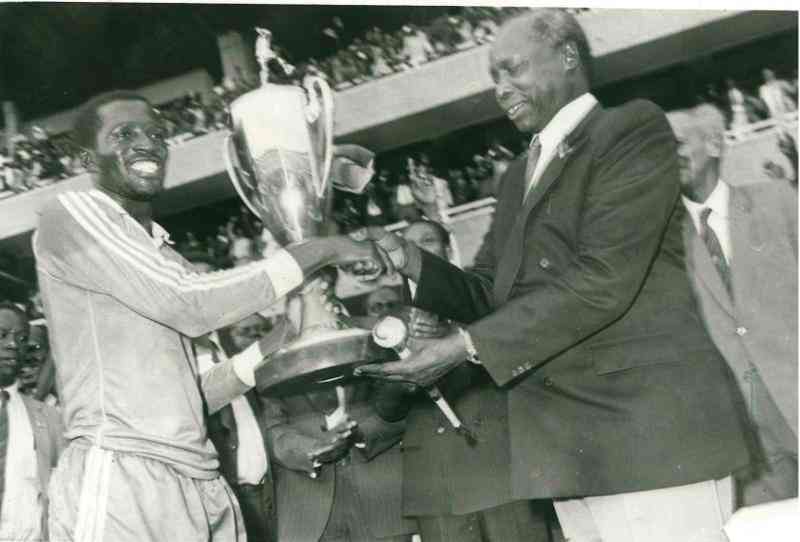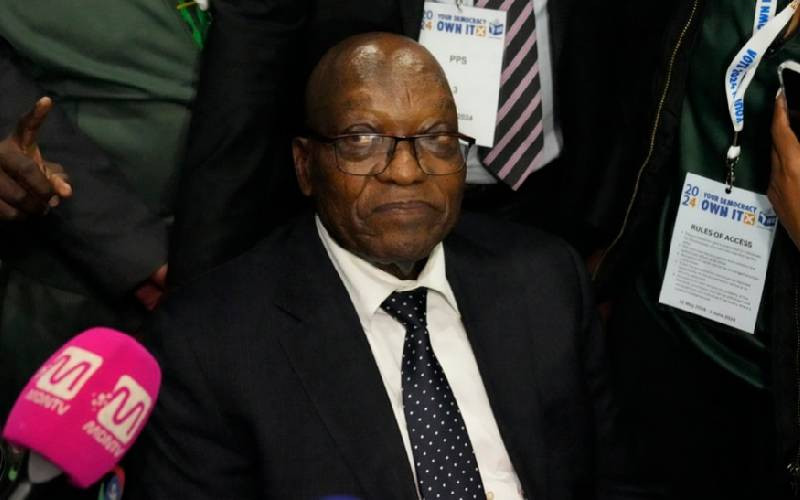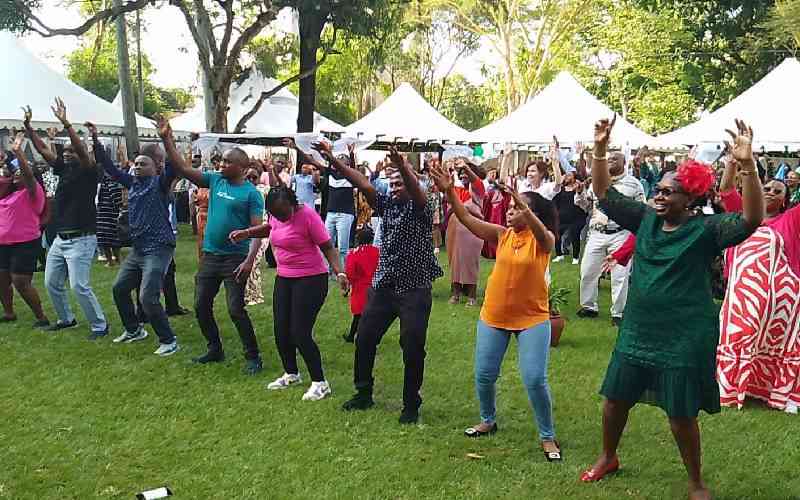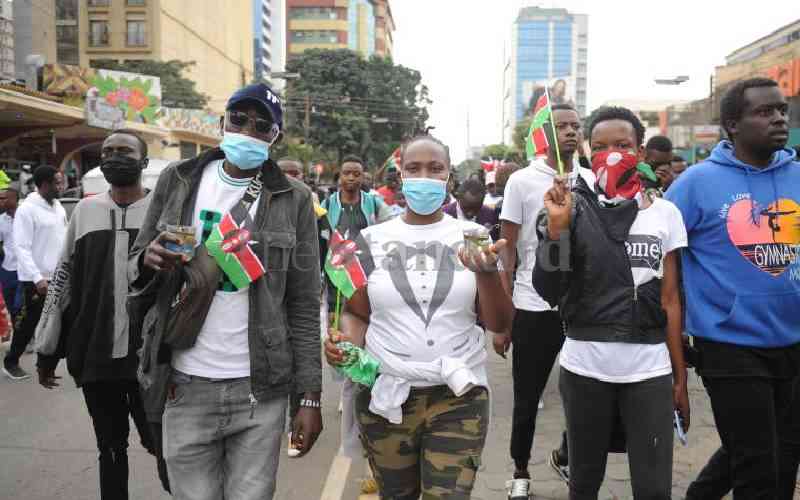“Umshini wami, umshini wami,” sang a heavy voice. We turned towards Old Nyati’s gate to behold a most peculiar sight. A man in traditional Zulu regalia was walking into the compound, singing the strange song and rhythmically stomping one leg on the ground. He was completely bald with a groove dividing the front and back parts of his head, a signature characteristic that made us to immediately identify him as Jacob Zuma, the President of South Africa. Old Nyati shot up from his stool to welcome our distinguished visitor. “Sir,” enthused the village sage, “welcome to our humble village.” Zuma continued with his performance before finally acknowledging the presence of Old Nyati.
“Look, my friend,” he addressed Old Nyati, “I am here to think in peace about the increasing loss of public support for the ANC.” Old Nyati assured him that his deliberations would bear a positive outcome, and escorted him to the guesthouse at the edge of the village.
Zuma lived up to his reputation as a man who loved to wine, dine, sing and dance. In the mornings, we saw him seated on the bench on his veranda, devouring a hefty breakfast of lamb leg and ugali, washed down with potent traditional wine. Afterwards, he would recline in the hammock and dream the morning away. He would speak in his sleep, calling out endearments to his wives. “Come hither my one, er, many and only darlings,” he would call sweetly.
After vigorous feeding on lunch, he would devote the afternoons to singing and dancing to his favourite song. In the evenings, he would hold court in his yard, pontificating on various national, regional and international issues. “You see,” he told us one evening, “the stuff in Syria... they should let me negotiate a just settlement to keep Bashar in power...you know, like I did for Kaddafi in Libya.” He paused in thought before adding, “Ok, it did not work because they deposed Kaddafi....”
On another evening, Zuma told us about his solution to the situation in Zimbabwe. “Comrade Mugabe,” said Zuma, “should be left alone... he is not doing any harm as he spends most of the time sleeping.” He affected a philosophical expression on his face before concluding, “My principle is simple; let sleeping presidents lie.” He got a kick from his witticism and allowed himself a hearty guffaw.
But it was while discussing domestic issues that Zuma seemed most animated.
“I know the ANC is losing public support,” he lamented to us on another evening,” but the problem is with the public... we in the ANC have never abandoned our support for the public, at least the public that is in government.” He looked into the space in front him, like a man saddened by being misunderstood.
“What do you say to use of public money to renovate your private residence?” someone began.
“Look,” answered Zuma in the same attitude, “ those renovations were to boost my security... the swimming pool was really a water reservoir in case of a fire... the marble tiles were made especially slippery to impede the movement of potential assassins... as for the beautiful and expensive fittings... they give me inner joy... they secure my inner peace.”
Every time I listened to him, I could not help thinking how first Thabo Mbeki and now Zuma had performed woefully below the standards set by Nelson Mandela. Mandela’s leadership emphasised personal integrity. Madiba sought to re-engineer society according to core democratic values as enshrined in the South African constitution. He refused to imagine the future through the prism of mere cultural traditionalism. Abroad, his diplomacy eschewed expediency, and he avoided stereotypical knee-jerk reactions to any criticism of African governance by rights bodies. Unlike his successors, he criticised the likes of Mugabe and Mobutu, and championed the rights of the underdog in Africa and the world.
One evening, someone asked Zuma about his claim a few years ago that hitting the shower right after sexual intercourse washes away the HIV virus. “Well,” he said matter-of-factly, “as long as it is a cold shower... nobody, even a virus, likes a cold shower.” Later that night as I went home, I wondered what excuses African intellectuals this time would give were South Africa to fail. A far-fetched idea perhaps, but looking at once promising African countries did not inspire optimism.
 The Standard Group Plc is a
multi-media organization with investments in media platforms spanning newspaper
print operations, television, radio broadcasting, digital and online services. The
Standard Group is recognized as a leading multi-media house in Kenya with a key
influence in matters of national and international interest.
The Standard Group Plc is a
multi-media organization with investments in media platforms spanning newspaper
print operations, television, radio broadcasting, digital and online services. The
Standard Group is recognized as a leading multi-media house in Kenya with a key
influence in matters of national and international interest.
 The Standard Group Plc is a
multi-media organization with investments in media platforms spanning newspaper
print operations, television, radio broadcasting, digital and online services. The
Standard Group is recognized as a leading multi-media house in Kenya with a key
influence in matters of national and international interest.
The Standard Group Plc is a
multi-media organization with investments in media platforms spanning newspaper
print operations, television, radio broadcasting, digital and online services. The
Standard Group is recognized as a leading multi-media house in Kenya with a key
influence in matters of national and international interest.








